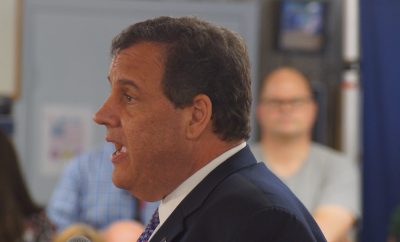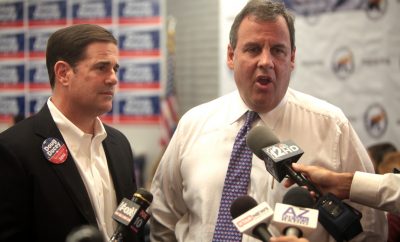
News
Jessica’s Law Should be Law of the Land
Every two minutes, another American is sexually assaulted. Forty-four percent of those victims are under the age of 18, and 15 percent are under the age of 12. These percentages are quite frightening when applied to the United States’ population of almost 320 million.
That’s why something called Jessica’s Law was passed in 46 states. That’s why Gov. Chris Christie publicly signed the law in New Jersey, which lengthens the sentences for sex offenders who assaulted children, with Jessica’s father present. But who is Jessica? And why are four states lagging behind?
Jessica’s Law
The Jessica Lunsford Act is named after a 9-year-old girl who was kidnapped, raped and buried alive by a twice-convicted sex offender, John Evander Couey, in February 2005 in Homosassa, Florida. A neighbor of the Lunsfords, Couey was known for his long history of drug violations. Police found Jessica three weeks after her abduction, buried in the backyard of Couey’s half-sister’s trailer. Jessica was wrapped in two garbage bags, clutching her favorite stuffed animal; she had just managed to poke two fingers through the bags. Her brutal death led her father, Mark Lunsford, to begin his crusade for further legislation for child protection against convicted sex offenders.
Jessica’s Law focuses on increasing the monitoring of sex offenders and lengthening their sentences. The original bill was passed in May 2005, in Tallahassee, Florida. Nine years later, New Jersey governor, Chris Christie, signed the The Jessica Lunsford Act. He held a ceremonial signing June 2 to raise awareness for the cause after officially signing the bill May 15.
Similar to the Florida bill, the New Jersey law increased the minimum sentencing for aggravated sexual assault against children under the age of 13. Previously, the minimum was 10 to 20 years in prison; now those convicted must serve at least 25 years without parole. The New Jersey law allows a plea deal to lower the minimum sentence to 15 years under certain circumstances outlined by the state Office of the Attorney General.
But some states still lag behind.
Each state’s version of the law varies its specific regulations for sentencing and monitoring. But four states have yet to sign even a partial version of The Jessica Lunsford Act. Mark Lunsford said Colorado will enact its own version of the law later this week, according to the Asbury Park Press. This is not enough.
Lunsford has waged war in the name of his daughter, but he cannot rest, we as a nation cannot rest, until all 50 states sign the bill. He remains a fierce advocate for full passage throughout the nation, as do I.
I deem sexual assault an unforgivable crime; the emotional damage such a crime causes could be enough to destroy its victim’s life. Rape victims are prone to suffer depression and trauma, and are more likely to attempt suicide. For that, perpetrators of sexual assault on children deserve to serve the time for their crimes and to be monitored upon release.
Perhaps the budget is an issue preventing those last four states from hopping on board, but the future generations of our nation should be granted peace of mind. My father and his siblings roamed the streets of the Bronx, NY, without fear in the 1950s; nowadays helicopter moms fear turning their backs on their children for just a moment in public.
Justice for tomorrow’s Jessicas
The nationwide recognition of this bill would signify further protection for our nation’s children by declaring sexual assault on a child a first degree crime. The necessity to ensure children’s security from sexual predators can be seen from the startling sexual assault statistics in this land of the free.
So, I stand with Mr. Lunsford. We must make it known from the Pacific to the Atlantic, that sexual assault is unacceptable. The installation of this bill in all fifty states means a higher possibility of lowering the percentage of children who are sexually assaulted.
—
Natasha Paulmeno (@natashapaulmeno)
Featured image courtesy of [theodoritis via Flickr]








Comments